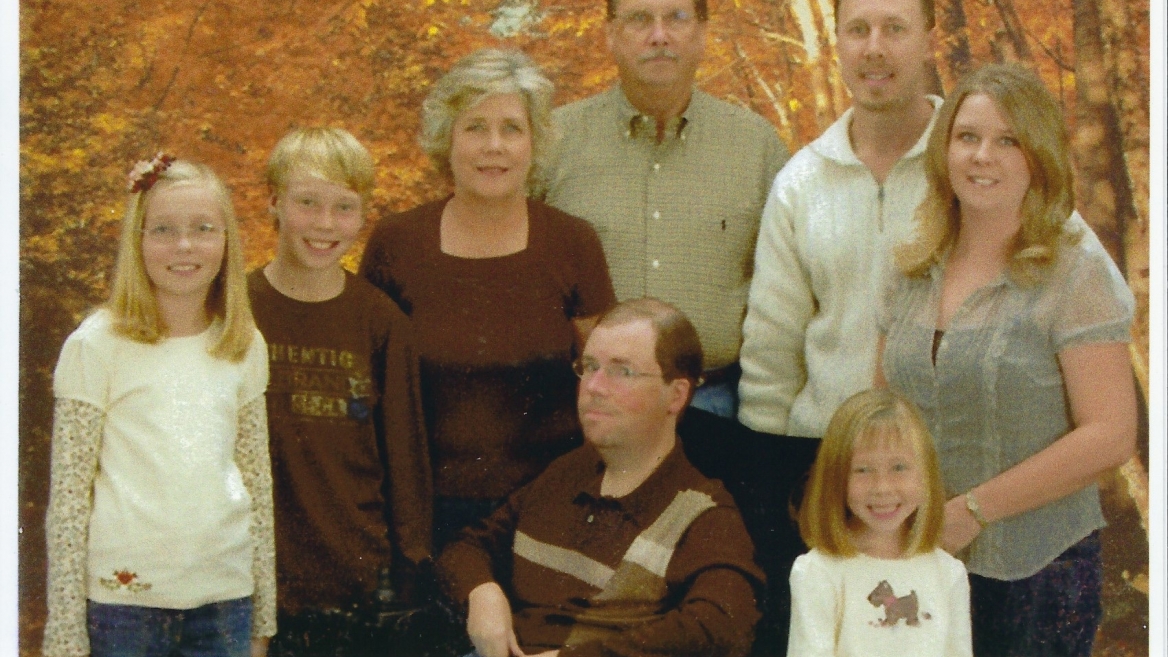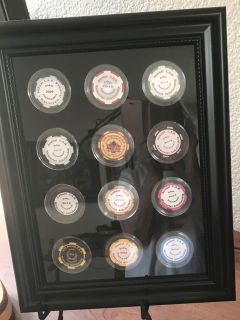
For 12 years, parents memorialized son with annual tournament for ASU scholarships
Christopher Rearley spent his life beating the odds. He was diagnosed with muscular dystrophy at age 6 and was permanently using a wheelchair by 11. By the time he started college at 18, his doctors, knowing that his breathing capacity was only 20% of normal, said he would live only months, a year at most.
That prediction didn’t hold up. He started community college, then came to Arizona State University, defying his doctors’ prognosis.
Rearley received his bachelor’s degree in criminal justice from ASU in 1997. His gamble paid off in that he lived 15 more years — not one — which is why it is no surprise to know that he loved playing poker.
After spending most of his life living with the effects of MD, Rearley passed away in December 2007 at 33. His parents, Carolyn and Bob Rearley, wanted to honor him and the field he studied by raising money for scholarships specifically for students with disabilities attending Arizona State University's School of Criminology and Criminal Justice. They decided to hold a poker tournament.
There are plenty of other ways to raise money for a cause, from formal dinners in hotel ballrooms to car washes and everything in between. But it just seemed right to the Rearleys to raise it in a way their son would have found personally delightful and be enjoyable to those involved.
A poker tournament said so much about their son, who particularly enjoyed playing a variation known as Texas Hold ’em. Poker also symbolized his overcoming the many challenges he faced. So the Rearleys started planning.
“We had a cabin in the mountains for several years. Chris wasn’t able to go with us any longer because of the altitude and some other challenges,” Bob Rearley said. “When we were gone on the weekends he and a group of friends liked to play Texas Hold ’em. They’d get together on Saturday evenings. I didn’t know about the game at the time and I still know little about it. I know five-card stud.”
In March 2009, the Rearleys held their first-ever charity poker tournament at their Scottsdale home to benefit the school where Chris earned his degree. The first event brought about 50 players and 30 volunteers. Many were Chris’ former poker buddies, who used to join him on those weekends over stacks of chips and decks of cards while his parents were out of town.
“We couldn’t believe all these people were here supporting us and helping us to achieve our goal.” Carolyn Rearley said. “But we realized that to keep this alive we couldn’t keep holding it at our house.”
She said that first tournament was organized in only two months.
“I look back and can’t believe we did it in such a short amount of time. About $5,000 was raised and it was amazing to me that we made that much,” Carolyn Rearley said. The table limit was $40, she said, so she and her husband weren’t worried about anyone losing a lot of money.
Starting the second year, the event moved to a golf course clubhouse, taking about nine months to plan. “Bob and I are perfectionists so everything had to be just so,” Carolyn Rearley said. It must have been pretty close to perfect, because the tournament was held annually for 11 more years.
Chris himself always had an unmistakable presence at each tournament, which was testimony to his love of laughter. Every year, a caricature of him was prominently placed at the entrance to the event. In the drawing, Chris is depicted wearing a favorite shirt. Each year he had a seat at the head table, with that shirt draped over the chair and his favorite ASU hat on the table.
“So he was always there,” his mother said. “The dealer would put in chips for him and many times he would stay in the game longer than some of the other players.”
The prizes also became more attractive as time went on, to the point where contestants who won enough hands to make it to the final table of eight players each won a prize. Whomever was the final winner had first choice, followed by the second place and third place winners and down the line.
Some quite attractive prizes were awarded over the years. Over the years, several ASU units supported the effort by donating Sun Devil Athletics and ASU Gammage tickets. Winners also received prizes such as airline tickets for four to anywhere in the country Southwest Airlines flew. The Walt Disney Company and Sea World gave tickets to their parks. Rounds of golf on some of the nicer courses in the Valley were donated, too.
“We have had people who never knew us before but came to this tournament and became friends, supported us and spread the word,” Carolyn Rearley said. “This encouraged others to attend, helping make our tournament the success it was. With their help we raised greater funds to support the scholarship in Chris’ memory.”
The first event was a financial success, but also brought together so many people who had a connection to Chris or to those who knew him. Combined, through the last one held in March 2020, again in the Rearley home, the Christopher Allen Rearley Endowment Scholarship (CARES) Poker Tournament raised more than $130,000 for scholarships for School of Criminology and Criminal Justice students with disabilities. The tournament proceeds comprise the school’s largest scholarship endowment ever, according to the school.
This past year, Bob and Carolyn Rearley made the difficult decision that the 2020 tournament would be the last. Chris’ friends, old and new, were disappointed. “They were very sorry to see us end it.This has been a labor of love,” Carolyn Rearley said. “It came full circle.”
For the Rearleys, all the hard work was worth it for so many reasons, but most of all, it was because the tournament did its most important job: preserving their son’s memory. “Many of the early players and volunteers stayed with us over the years,” Bob Rearley said. “We couldn’t have done it without them.”
“He had his struggles but he never ever complained, I might think of a time or two, but he really never did.” Carolyn Rearley said of Chris. “He always thought about the other guy.”
Chris wanted to go to law school because of his commitment to human and civil rights. But by that time his disability had advanced to a point where he was unable to continue his education.
“He fought for the underdog,” she said. “He was funny. He was the master of one-line zingers. He liked to tease. Chris has an older sister, one nephew and two nieces he really loved. He’d be proud to know the first two graduated from ASU and one more is in college.”
His parents said he believed strongly in the importance of education for everyone, especially the disadvantaged. “Although he was physically challenged, he had a strong brain, and we always encouraged him to use it,” Carolyn Rearley said.
The tournament that bore his name may be retired now, but it’s not tough to imagine Chris’ friends are still gathering somewhere and tossing a few chips his way.
And where they are, he is, too — still beating the odds.
